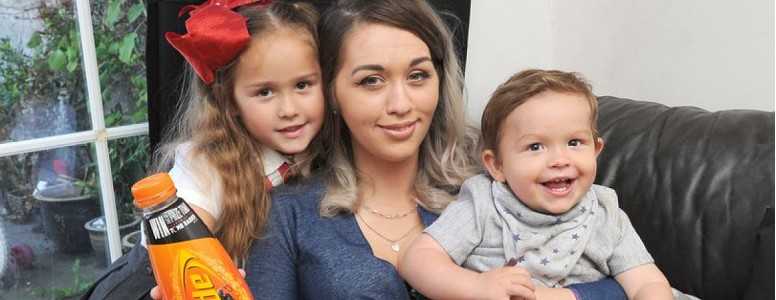A mother with type 1 diabetes who experienced a severe hypo has revealed how her four-year-old daughter helped save her life.
The situation was already dangerous, as severe hypoglycemia (very low blood sugar) can lead to unconsciousness if not treated quickly. However, this hypo was even more dangerous as Heather Carson Calder, from Ayrshire, had collapsed on top of her 18-month-old so, Elijah.
Hypoglycemia occurs when blood glucose levels fall below 4 mmol/l. It can develop quickly so it is important people with diabetes and family members are aware of the symptoms and act swiftly to treat the hypo. Severe hypoglycemia is when blood sugar levels fall very low and the person with diabetes is unable to treat their own hypo an needs help from others.
Fortunately, her daughter Ariah-Grace saw what had happened and ran to get “mummy’s medicine juice” to boost Heather’s blood sugar levels.
Speaking to The Daily Record, Heather said: “I had collapsed on my face then rolled over Eli and Ariah pulled him out from under me. She got Lucozade, opened it and fed me and tended to her brother while being wary of keeping the baby gate closed.”
Praising her daughter, Heather called her “a wonderful little human”.
Even young children can be life-savers as this case shows. In the past we have seen how aware and responsive youngsters can be when faced with alarming situations related to diabetes in parents.
In February, we reported how six-years-old Henry Uren helped to save his mum Bethany who had passed out from a severe hypo.
Symptoms of hypos can vary one person to another but some common signs to look out for are shakiness, unsteadiness, sweating, a distant look in someone’s eyes, confusion, slurring words or otherwise having difficulty answering simple questions.
In 2014, we developed the Hypo Training Program which helps people to recognise and treat hypos. The program provides clear and simple guidance to help people with diabetes, and a range of carers, to better understand, spot, treat and prevent hypos.
What's new on the forum? ⭐️
Get our free newsletters
Stay up to date with the latest news, research and breakthroughs.




